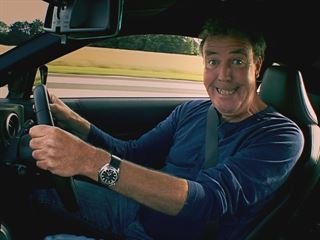For one thing, Top Gear is a major cash cow for the BBC, and Clarkson is central to the show's success. So given the opportunity to set things right, as controversial as he is, it would be hard to imagine the network walking away from all that revenue. But it may be facing some outside pressure to put Clarkson and his cohorts back on the air.
One factor could be an online petition encouraging the BBC to lift Clarkson's suspension and reinstate the controversial personality. The petition went live on Change.org less than 24 hours ago, and as of the time of this writing, has already exceeded 400,000 digital signatures out of the 500,000 it seeks to gather.
But even if the BBC ignores the outcry from its viewership, Clarkson could find himself a new home. According to the Daily Mail, ITV (another British television network) has offered Jezza £10 million ($15 million) to switch networks. While the prospect may seem unthinkable, it wouldn't be without precedent: Channel 5's rival program Fifth Gear rose out of the ashes of the original Top Gear after the BBC pulled the plug back in 2001.
The incident that started this whole mess reportedly erupted at the end of a long day of filming. When an apparently exhausted (but inexcusably violent) Clarkson saw there was no food waiting for him and his co-hosts, he reportedly assaulted the show's assistant producer, Oisin Tymon. The development was reportedly kept quiet until senior network executives caught wind of it, suspended Clarkson and put a freeze on broadcasting the remaining episodes of the season that was already in progress.
Of course this wasn't Clarkson's first infraction. Ever outspoken, he's made some controversial comments on and off the air over the years, but was put on probation after a video leaked out that allegedly recorded Clarkson uttering a racial slur for which he later apologized. He and his co-hosts were subsequently chased out of Argentina by locals angered by an apparent taunt related to the Falklands War that pitted the South American country against the UK in 1982.
Nouvelles connexes



